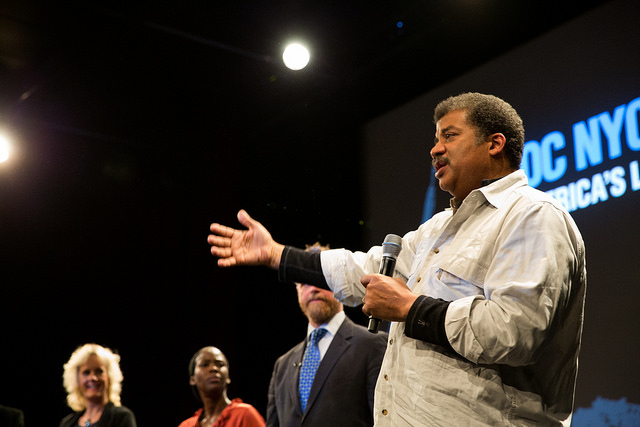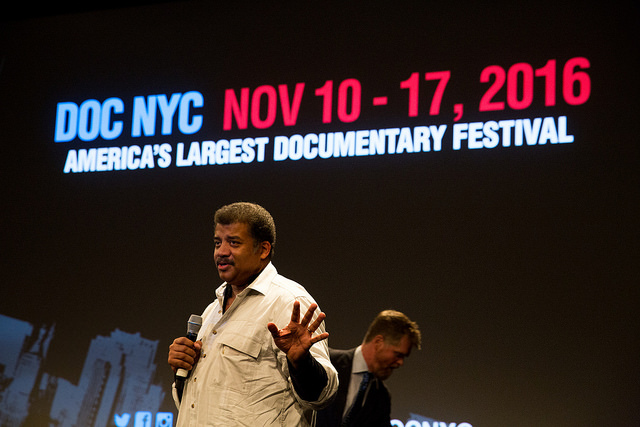Food Evolution Tackles The Great GMO Debate A surprisingly convincing argument in favor of genetically engineered food


Written by Rebecca DeRosa
What is in the food we eat and how do we know if it is safe? With globalization and advances in technology, that is increasingly harder to answer. Many people believe that genetically modified food (GMOs) can cause a host of diseases and disorders such as alzheimer’s, autism, and cancer. But does science support this?
In Food Evolution, which premiered at DOC NYC on Saturday, director Scott Hamilton Kennedy explores this controversial topic. One thing everyone can agree on is that we must have access to an abundance of healthy and affordable food that is grown sustainably. In this documentary, Kennedy and a team of scientists present the argument that this can be achieved through advances in science, including genetically engineered food.
By slightly altering a plant’s genetic make up, food engineers can create crops that are tolerant to droughts and resistant to pests and diseases. They can also enrich foods—for example, they can make rice that has added vitamin A which can prevent blindness in children living in developing countries.
The backlash against GMOs stems from people’s distrust in big agriculture and corporations like Monsanto. It is believed that the CEOs only care about making a profit even if it is making people sick. Anti-GMO activists present data and anecdotal evidence supporting this notion. Leading experts say this is pseudoscience based on fear.
How do we know what to believe? It’s such a personal issue for people as they try to protect their health and the health of their families. “GMOs are not about GMOs,” said food writer Nathanael Johnson in the film. “It’s about our relationship to food.”
Renowned scientist Neil deGrasse Tyson, who narrates Food Evolution, said after the screening, “Science is true, whether or not you believe in it.” He went on to say, “If people knew how to understand and process data, and think about it, we wouldn’t even need this film.”
The problem also may be how the information and research conclusions are presented to the public. Dr. Emma Naluyima, a farmer and veterinarian from Uganda who works on finding solutions to provide food security, said during the Q&A, “Scientists are not the best communicators. We are good at collecting data and doing the research but we don’t always know how to put it into layman’s terms.”
Alison L. Van Eenennaam, an expert in animal genomics and biotechnology, also in attendance at the premiere, agreed that the best thing to do is to examine the evidence objectively. She said that people should look at the studies and trust leading scientific organizations when they all find the same results.
“When results are repeated and found to be true—that is scientific truth,” said Tyson. “Laws should be made based on truth. Or that is the end of an informed democracy.”
Food Evolution certainly seemed to convince the audience. Before the film began, Kennedy asked people to raise their hands if they thought GMOs were harmful. About half the audience raised their hands. At the end of film, when he asked for a show of hands, there was only one.
Rebecca DeRosa is a writer, musician, and yoga teacher living in Brooklyn. When she’s not writing reviews for Tom Tom Magazine, she is playing drums in the band Fisty.




